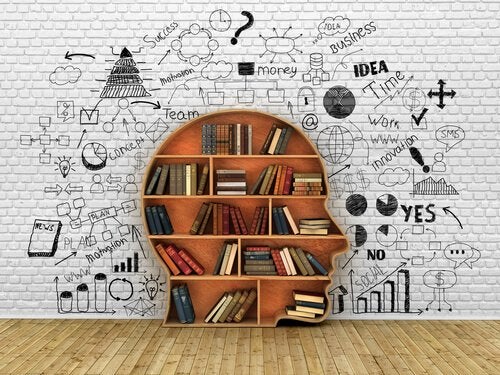Bibliotherapy (also referred to as book therapy, poetry therapy, or therapeutic storytelling) is a creative arts therapies modality that involves storytelling or reading specific texts with the purpose of healing.
I recently stumbled on the concept of bibliotherapy while I was reading David Burns Book, Feeling Good: The New Mood Therapy. Burns referenced five studies in which researchers studied the effects of reading a good self-help book without any other form of therapy. He wrote:
In a series of five remarkable studies published in the prestigious Journal of Consulting and Clinical Psychology and in The Gerontologist, Dr. Forest Scogin and his colleagues at the University of Alabama studied the effects of simply reading a good self-help book like Feeling Good—without any other therapy. The name of this new type of treatment is “bibliotherapy” (reading therapy). ”
“They discovered that Feeling Good bibliotherapy may be as effective as a full course of psychotherapy or treatment with the best antidepressant drugs.”
The researchers concluded that bibliotherapy was effective for patients suffering from depression and might also significantly role in public education and depression prevention programs. In addition, they speculated that Feeling Good bibliotherapy might help prevent serious episodes of depression among individuals with a tendency toward negative thinking.
In their book, Bibliotherapy with Young People: Librarians and Mental Health Professionals Working Together, psychologist Beth Doll and school library media specialist Carol A. Doll explored a comprehensive five-step bibliotherapy model. They write
“bibliotherapy is sharing a book or books with the intent of helping the reader deal with a personal problem.”
The simplest definitions describe bibliotherapy as the healing power of books. For example, Bernstein (1989, 159) states, ”The term ‘bibliotherapy,’ most simply defined, means helping with books. Everyone can be helped through reading, including those not currently faced with a problem, not in therapy, and not directed to the reading material by someone else.” This same sentiment is echoed in Smith’s (1989, 241) definition: “Simply put, [bibliotherapy] can be defined as healing through books.” Similarly, Ashley (1987, 220) concludes, “Bibliotherapy, then, maybe seen as remediation through reading.
The Dictionary of Education (Good 1966, 212) provides a lengthier definition: “[U]se of books to influence total development, a process of interaction between the reader and literature which is used for personality assessment, adjustment, growth, clinical and mental hygiene purposes; a concept that ideas inherent in selected reading material can have a therapeutic effect upon the mental or physical ills of the reader.” Finally, Hart’s (19871988, 56) definition states, “In bibliotherapy, the counselor or librarian guides the solution of personal problems through directed reading.
I have always been fascinated with books, especially non-fiction, personal, and self-development books. I strongly believe that everything in life is figureoutable. Someone has often gone through the challenges you are facing right now, and they have distilled their lessons learned and insights into book form (eBook, audiobook, hardcopy, etc.). When I got exposed to the concept of bibliotherapy, I was immediately hooked and excited because it is what I try to do daily. I try to figure out most things through reading books, and I summarise the books I read on this blog.
As American educator Edgar Dale once noted
WE REMEMBER 10% of what we read 20% of what we hear 30% of what we see 50% of what we see and hear 70% of what we discuss with others 80% of what we personally experience 95% or what we teach others.
This blog is where I go through my bibliotherapy daily. I read books, summarise them, research, and expand insights I garnered from reading. Reading and listening to audiobooks daily has been therapeutic for me and It is also helping me with honing my writing skills.

Comments are closed.